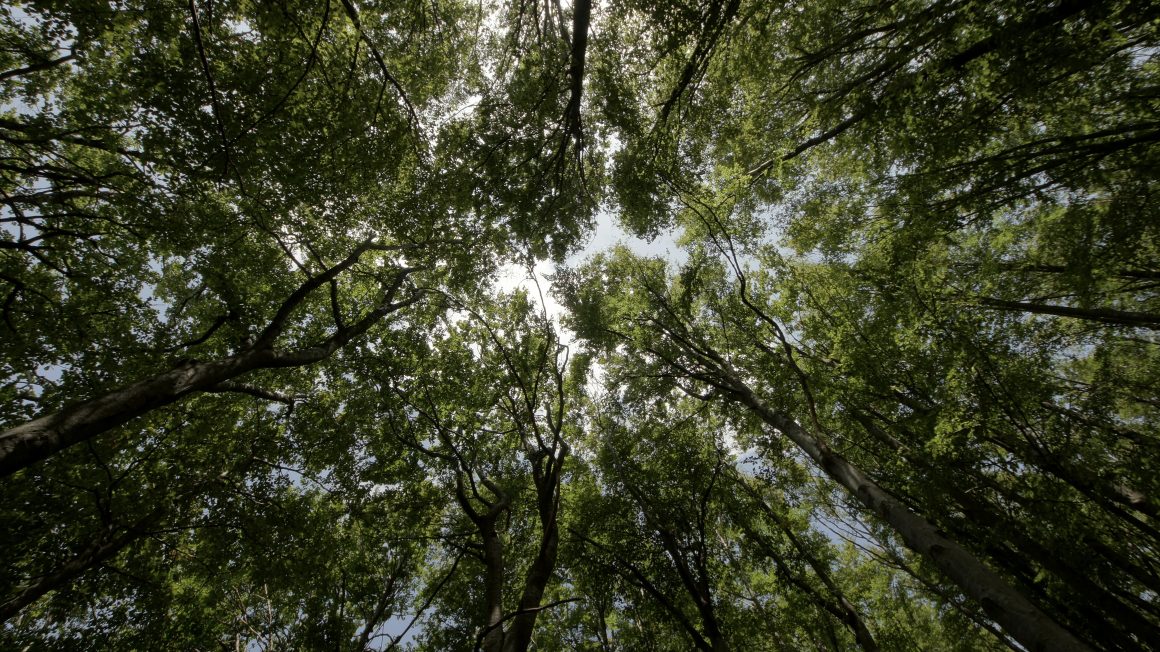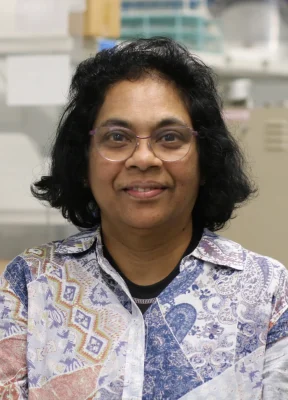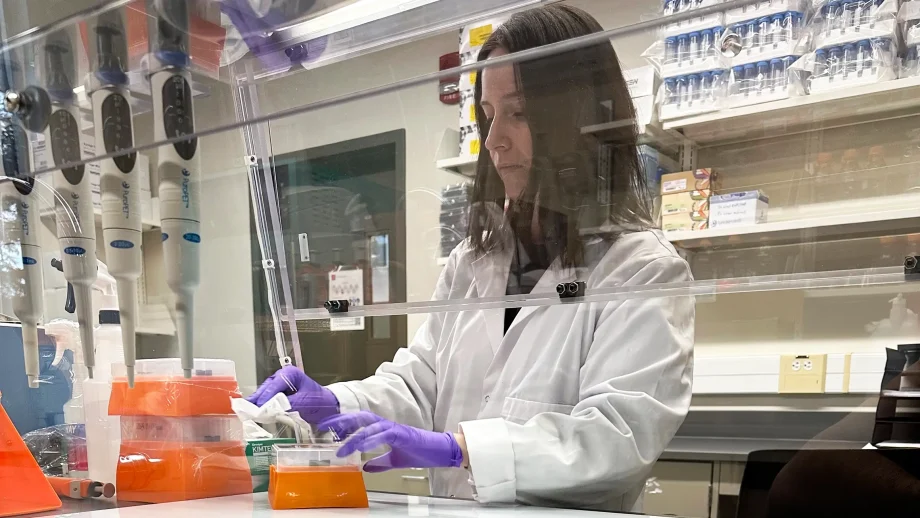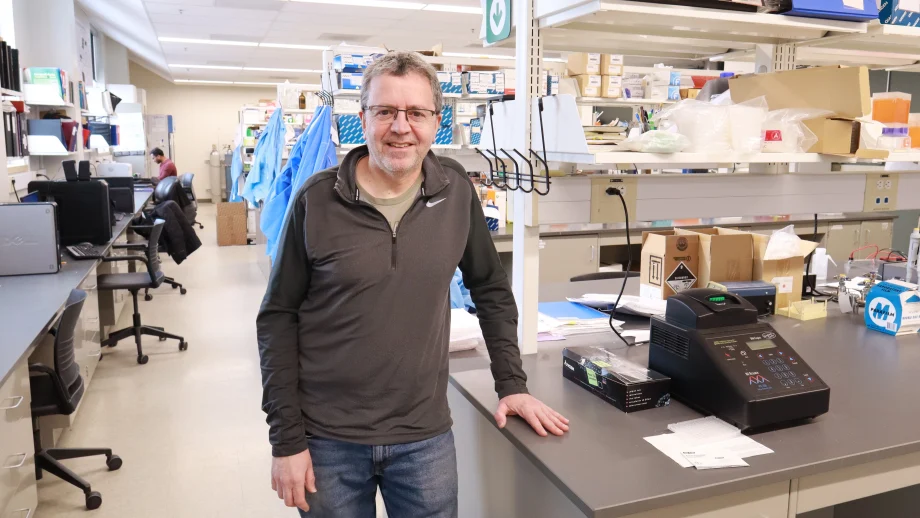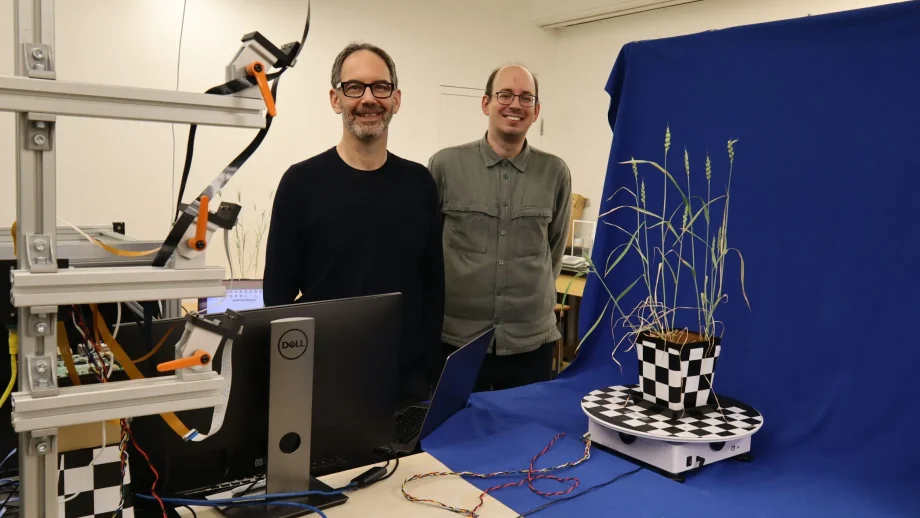The Earth’s health greatly affects all living creatures big and small. UWinnipeg’s Dr. Srimathie Indraratne is an earth/soil scientist whose research focuses on keeping contaminants out of our water and food systems.
Since she was a child, Dr. Indraratne was captivated by the fresh smell of soil. She was fascinated by the idea that beneath her feet lies a secret world of living things. Her motivation to study soils and understanding how the health of our soil influences everything has led her research at UWinnipeg.
Saving our boreal forests
She is currently looking at the environmental significance of potentially toxic trace elements from metal mining projects in boreal forests and agriculture production in our soil in Manitoba.
Restoring soil health will lead to safer, healthier crops by reducing the risk of heavy metal accumulation in our food.
Dr. Srimathie Indraratne
“Canada has an abundance of precious metals, particularly in boreal forest regions,” explained Dr. Indraratne. “Boreal forests are unique ecosystems characterized by extreme temperature changes, thick layers of organic litter, and dense forest cover. These forests play a critical role in maintaining ecological balance, supporting biodiversity, and regulating climate through carbon storage.”
Metal-contaminated soils pollute our water
While agriculture and mining precious metals brings economic benefits, it also comes with serious environmental damage. Metal-contaminated soils can pollute drinking water and crops grown in, or near these soils. Rainfall and soil erosion can spread this contamination further if these issues are ignored.
Dr. Indraratne’s quest to clean our earth and water was given a $40,000 boost with a Natural Science Engineering Research Council of Canada (NSERC) Discovery Development Grant. Her research project, Immobilizing multi-metal(loid)s contaminated soils adjacent to orphaned mines in Northern Manitoba using natural minerals and modified biochar, will work to repair metal-polluted soils and sediments caused by mining in boreal forest areas.
Dr. Indraratne’s residency in Winnipeg offers a strategic advantage, providing convenient access to metal-contaminated boreal forest sites. This proximity allows for in-depth research and practical interventions aimed at soil remediation and ecosystem restoration.
Heavy metals in soil pose a serious threat to all living creatures
Dr. Indraratne explains that heavy metals in soil pose a serious threat to all living creatures, including humans. These toxic metals can accumulate in fruits and vegetables and contaminate our drinking water. When crops are grown in contaminated soils, they uptake these metals, which then build up in the edible parts of the plants which are then consumed by wildlife and humans.
“Over time, even small amounts of these toxic substances consumed through food and water can lead to significant health risks, including chronic diseases and developmental issues,” said Dr. Indraratne. “My main focus is cleaning up or remediating metal-polluted soils and sediments caused by mining in boreal forest areas.”
There are many ways to remove the toxins. Dr. Indraratne’s approach involves either stabilizing the metals in the soil by creating concrete-like materials within the soil (immobilizing of metals) or using plants to uptake the metals (phytoremediation), and then carefully harvesting those plants.
Re-establishing healthy plant communities
“By cleaning up metal-contaminated soils, my goal is to prevent water pollution, ensuring safer drinking sources for humans and wildlife,” said Dr. Indraratne. “Additionally, restoring soil health will lead to safer, healthier crops by reducing the risk of heavy metal accumulation in our food.”
Re-establishing healthy plant communities will prevent further contamination of water bodies and surrounding lands, and more importantly, will also directly benefit aquatic ecosystems, human health, and wildlife.
“Ultimately, my work aims to create a healthier environment that supports the well-being of all living things,” said Dr. Indraratne. “We need more young people who aren’t afraid to get their hands ‘dirty’. Soils must be preserved for future generations, and I strongly encourage everyone to take an active role in safeguarding them.”

